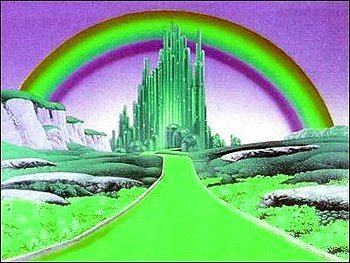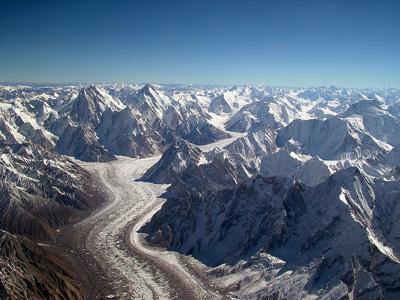Who says global warming is bad to start with
by Dave
(USA)
Who says global warming is bad to start with? If it happens, it happens. We will adapt, as will most other species.
Those that can't adapt will become extinct. As with climate change itself, this is neither good nor bad. It simply is. Get used to it.
Barry's Response - It happens anyways. Always did before we came along and always will. The Ancient climates
page on this site will show you some examples.
Here are some things that could be better after global warming:
- Cold weather related illnesses and deaths could decrease, some of us may enjoy the relief of warmer winters. Alberta, Saskatchewan and Manitoba should appreciate that.
- Increased precipitation worldwide
- Easier driving, shipping lanes and flying, especially in those areas with winters
- Less temperature contrast, and this leads to less wind
- Increased area of land suitable for agriculture in Northern Hemisphere. The extra CO2, moisture and temperatures should give us better yields.
- Opportunities for fishing in previously unavailable waters
- Increased tourism in previously inaccessible areas
- Enhanced biodiversity, more new species could replace any lost, other species could be expected to gravitate towards the nearest pole.
- Increased research and commercial opportunities in the Arctic and Antarctic regions.
- New and larger estuaries, often popular and desirable locations
Nature's always changing
Species come and go, and humans are pretty adaptable. Throughout geological time, climates have shifted wildly, and extinctions are part of life. Before we just shrug and say, "It is what it is," let's lay out some hard facts, practical implications, and common sense.There's something different about this cycle
Earth's climate changes naturally as a result of Milankovitch cycles (variations in Earth's orbit), volcanic activity, and solar cycles. But today's warming is happening 50 times faster than typical post-ice age warming. That pace matters. Natural ecosystems and human economies might not be able to adjust.
It's expensive and uneven, and it doesn't happen equally. Wealthier nations might build seawalls or change crop varieties. How about the others? Migration patterns, insurance markets, and food systems don't like surprises.
There's more government intervention when things are unstable, whether it's economic or environmental. Wouldn't it be better to handle this upstream, minimizing risks while maintaining market freedom?
Who wins? Who loses?
We shouldn't ignore the downsides, even if there are localized benefits like milder winters in northern regions, longer growing seasons in Canada and Russia. Heatwaves and crop failures in agricultural zones, rising insurance costs from extreme weather, and military and geopolitical risks.
When one sector gains, but your overall exposure is going up (leading to more volatility, more risk) you're still at risk. It's not just about short-term gains, it's about risk too.
Ecosystems and biodiversity are disappearing. Life finds a way to create new species. Pollinators die, fisheries collapse, forests dry up, and that affects industries, food supplies, and livelihoods.
Compared to heat, cold kills more people. Winter might not bite as hard in the future, but global, heat-related mortality is predicted to outpace cold-related mortality, especially in places with no air conditioning.
It's all about risk and reward. When you refuse to take calculated risks instead of gambling blindly, it's like driving without insurance.
Is global warming inherently evil? Not really, but ignoring the liabilities - rising costs, market instability, food and water shortages - would be foolish. Instead of paying higher premiums later, why not invest now in a diversified energy strategy, smart land use, and solid infrastructure?
I think that's what we're doing. Search this site for more information now, and feel free to comment below.
Do you have concerns about air pollution in your area??
Perhaps modelling air pollution will provide the answers to your question.
That is what I do on a full-time basis. Find out if it is necessary for your project.
Have your Say...
on the StuffintheAir facebook page
Other topics listed in these guides:
The Stuff-in-the-Air Site Map
And,
Thank you to my research and writing assistants, ChatGPT and WordTune, as well as Wombo and others for the images.
GPT-4, OpenAI's large-scale language generation model (and others provided by Google and Meta), helped generate this text. As soon as draft language is generated, the author reviews, edits, and revises it to their own liking and is responsible for the content.



